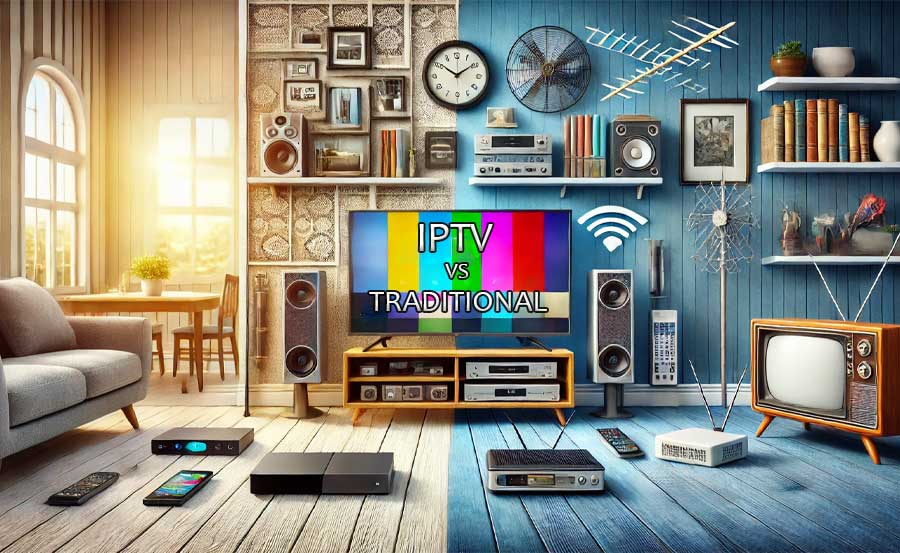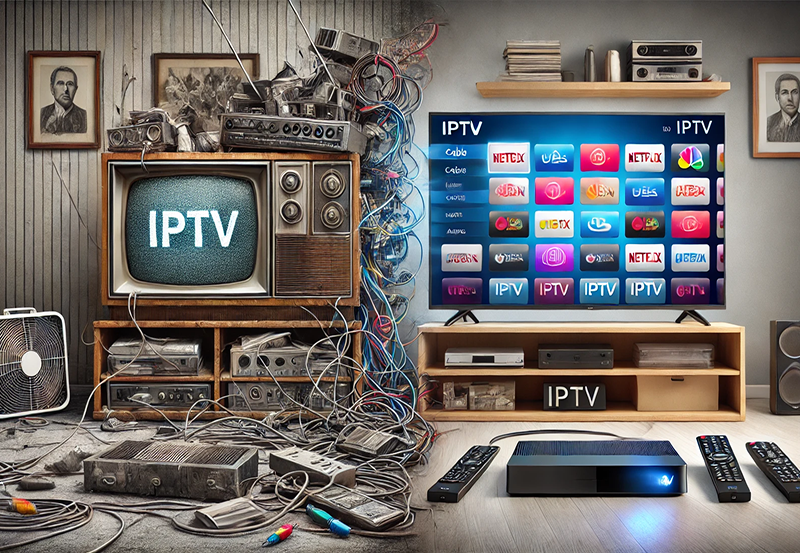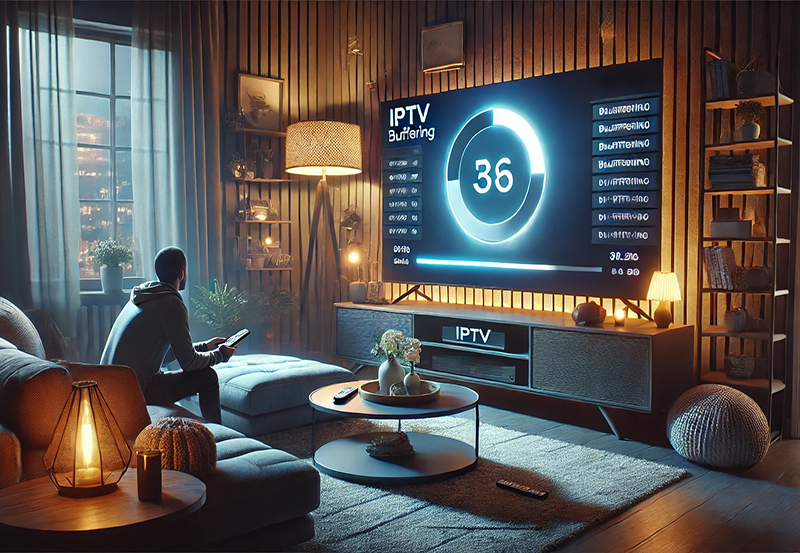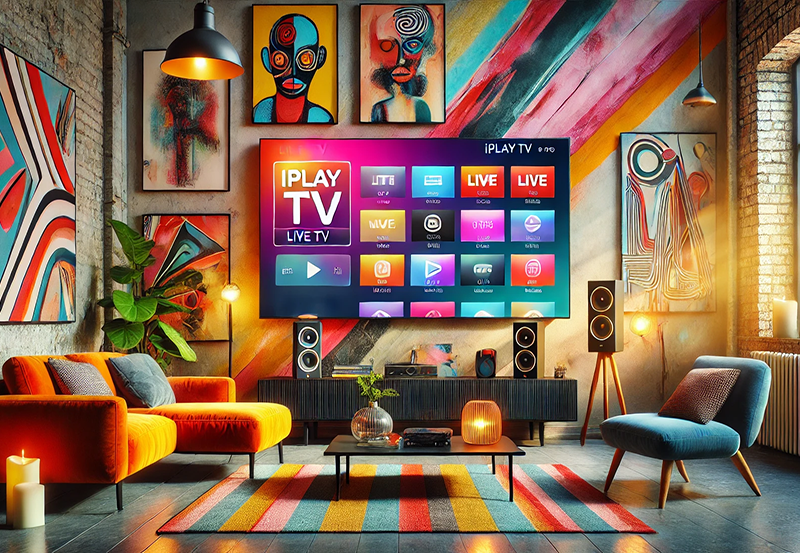The rise of Internet Protocol Television (IPTV) has revolutionized how people consume media, bringing with it a host of features that are far superior to traditional TV services. As streaming technology continues to evolve, IPTV is rapidly becoming the preferred choice for viewers, replacing conventional cable and satellite options. But why is streaming taking over, and what makes IPTV so appealing in today’s media landscape? In this article, we will explore the key differences between IPTV and traditional TV, along with the advantages that make IPTV the clear winner.
Buy IPTV and Unlock Global Channels
What is IPTV?
IPTV is a modern system that delivers television content through the Internet rather than traditional terrestrial, satellite, or cable formats. Viewers can stream content directly to their smart TVs, smartphones, tablets, or computers without needing an antenna, cable box, or satellite dish. IPTV services provide access to live TV, on-demand content, and video on demand (VOD) using a broadband connection, offering flexibility and personalization like never before.
Traditional TV: The Legacy of Cable and Satellite
Traditional TV, on the other hand, relies on broadcasting via antennas, satellite dishes, or cable infrastructure. Viewers are limited by the programming schedules set by networks, making it difficult to watch their favorite shows at their preferred times. While traditional TV has served generations of viewers, it is often rigid, expensive, and less flexible than modern streaming alternatives.
Key Differences Between IPTV and Traditional TV
1. Content Flexibility
IPTV offers a wide array of content that can be streamed whenever the viewer desires. Whether it’s live channels, recorded shows, or movies on demand, IPTV allows viewers to take full control of what they watch and when they watch it. In contrast, traditional TV forces viewers to adhere to rigid schedules. If you miss a show on cable or satellite TV, you’ll have to wait for a rerun or hope it appears on a DVR.
2. On-Demand Access
One of the most attractive features of IPTV is its on-demand capabilities. Subscribers can access an extensive library of movies, series, documentaries, and more, allowing them to watch at their own pace. Traditional TV services are heavily restricted by scheduled programming, with limited access to on-demand options and a reliance on DVR for content storage.Setting Up IPTV on Lazy IPTV: A Step-by-Step Guide
3. Device Compatibility and Multi-Screen Viewing
IPTV can be accessed on a wide variety of devices, such as smart TVs, computers, smartphones, and even gaming consoles. Users can seamlessly switch between these devices, resuming content from where they left off. Traditional TV, however, requires specialized equipment such as set-top boxes, and viewers are typically confined to a single screen (the TV).
4. Interactive Features
IPTV brings interactivity to a whole new level. Users can pause, rewind, and fast-forward live content, create custom playlists, and even manage multiple streams simultaneously. Traditional IPTV services rarely provide this level of control, offering limited options for viewer interactivity.
5. Cost Efficiency
Another reason for the widespread adoption of IPTV is cost efficiency. Cable and satellite services often come with high subscription fees and additional costs for premium channels or equipment rentals. IPTV services, on the other hand, are more affordable and flexible, offering tailored packages that meet individual needs without the hefty price tag of traditional TV.
Why is Streaming Taking Over?
The shift from traditional TV to IPTV is largely driven by the consumer demand for more control, flexibility, and variety in content consumption. The following factors explain why IPTV is overtaking traditional TV:
1. Convenience
In today’s fast-paced world, people no longer want to plan their schedules around TV programming. IPTV allows users to watch their favorite content whenever they want, without worrying about missing a show. The ability to pause, rewind, and fast-forward adds an extra layer of convenience, catering to modern viewers’ busy lifestyles.Installing Kodi on FireTV: A Step-by-Step Guide
2. Personalization
Unlike traditional TV, which offers a “one-size-fits-all” programming schedule, IPTV can be personalized to suit individual preferences. Whether it’s selecting favorite channels, curating content based on genres, or using smart recommendations based on viewing history, IPTV services make the experience more engaging and tailored to the viewer’s interests.
3. Global Content Access
IPTV opens up a world of global content. Viewers can stream channels from other countries, access international programming, and enjoy niche genres that are often unavailable on traditional TV services. With the increasing globalization of media, IPTV brings a vast array of entertainment options that surpass geographical limitations.
4. No Hardware Constraints
Traditional TV requires extensive hardware—set-top boxes, DVRs, or satellite dishes. IPTV eliminates the need for such equipment, as all the viewer needs is an internet connection and a compatible device. This ease of setup is a major advantage, especially for those who want to avoid the hassle of dealing with complex installations.
5. Streaming Quality
With the advent of high-speed internet, IPTV provides high-definition (HD) and 4K streaming options, delivering superior picture quality compared to traditional TV. Satellite and cable connections are often subject to weather conditions or signal interference, leading to poor reception. IPTV’s internet-based streaming is more reliable and consistent.
The Future of IPTV
As broadband speeds increase and internet access becomes more widespread, IPTV will continue to dominate the media landscape. The demand for interactive, on-demand content will only grow, and IPTV providers will keep expanding their offerings to meet the diverse needs of viewers.
In the ongoing battle between IPTV and traditional TV, it’s clear that IPTV is becoming the future of entertainment. With its flexible content delivery, global access, and cost-effective nature, IPTV offers a superior alternative for those seeking greater control over their viewing experience. As the world moves toward a more digital, on-demand lifestyle, IPTV’s advantages will continue to attract viewers who value convenience, personalization, and high-quality streaming. Whether you’re looking for live TV, on-demand movies, or global channels, IPTV is here to change the way you consume content.




